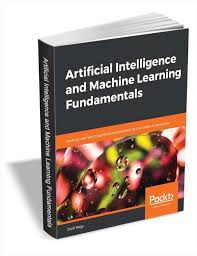Artificial Intelligence and Machine Learning Fundamentals: A Comprehensive White Paper
1. Introduction
Artificial Intelligence (AI) and Machine Learning (ML) are rapidly transforming our world. This white paper provides a comprehensive overview of these fundamental concepts, exploring their core principles, key algorithms, and diverse applications.
2. Artificial Intelligence (AI)
- Definition: AI encompasses the development of intelligent agents – systems that can reason, learn, and act autonomously.
- Key Concepts:
- Narrow (Weak) AI: Designed for specific tasks, such as playing chess or recommending products. Most AI systems today fall into this category.
- General (Strong) AI: Hypothetical AI with human-level intelligence and consciousness, capable of understanding, learning, and applying knowledge across various domains.
- Super AI: Hypothetical AI surpassing human intelligence in all aspects.
3. Machine Learning (ML)
- Definition: A subset of AI that focuses on enabling systems to learn from data without explicit programming.
- Core Concepts:
- Supervised Learning: Trains models on labeled data to predict outcomes.
- Examples:
- Regression: Predicting continuous values (e.g., stock prices, house prices).
- Classification: Categorizing data into discrete classes (e.g., spam detection, image recognition).
- Examples:
- Unsupervised Learning: Discovers hidden patterns and structures in unlabeled data.
- Examples:
- Clustering: Grouping similar data points together (e.g., customer segmentation).
- Dimensionality Reduction: Reducing the number of features1 in a dataset while preserving essential information.
- "Deep Learning" by Ian Goodfellow, Yoshua Bengio, and Aaron Courville
- Websites:
- Google AI: https://ai.stanford.edu/
- OpenAI:
- Research Papers:
- A vast number of research papers are available on platforms like arXiv, IEEE Xplore, and ACM Digital Library. Search for specific topics like "deep learning," "computer vision," or "natural language processing."
- Examples:
- This comprehensive white paper covers the fundamentals of AI and ML, including core concepts, key algorithms, diverse use cases, and ethical considerations. It also provides a list of valuable resources for further exploration.
- Supervised Learning: Trains models on labeled data to predict outcomes.



